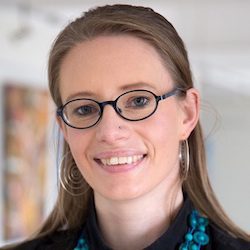[Update] The digest and recording of the webinar are now available.
Managing conflict and co-operation around natural resources – such as water, oil, and gas – is a key task of diplomacy. The task is to either find ways to meaningfully and beneficially collaborate by sharing and protecting resources, or solve conflicts around resources. Given that many natural resources form an important part of national interests and are key to the future development, if not survival, of states, the diplomacy of natural resources is of critical importance.
Taking a closer look at water and energy
In our November WebDebate, we will unpack the ideas and questions behind resources diplomacy – including conflict and co-operation around natural resources and notions of resource protection. We will then zoom in on the Middle East region and discuss the challenges around water resources and their diplomatic responses. Access to – and use of – water has become a critical question in the region and a source of conflict. The effects of climate change will only exacerbate the tensions. We argue that the task of diplomats is to lessen tensions and to find ways of ensuring collaboration and peaceful coexistence around shared water resources.
In the WebDebate we are joined by Lutine De Boer, who is an expert on water management in the region, and Katharina Höne, who is a senior researcher with DiploFoundation.
Join us online on Tuesday, 5th November at 12:00 UTC (13:00 CET). Registrations for this event are now closed.
Our speakers:
Lutine F. de Boer is a senior advisor on environmental policy, urban planning, and water for the Dutch regional government and is currently working with the regional waterboard on the implementation of the Dutch National Climate Adaptation Strategy. In 2005, she completed Masters programmes in both Civil Law and Environmental Policy from the University of Groningen, the Netherlands. In 2015, Lutine graduated from the Contemporary Diplomacy programme (MA) at the University of Malta (Diplofoundation) with distinction. She wrote her thesis dissertation on regional water co-operation in the Arab/Israeli conflict.
Dr Katharina E Höne is a senior lecturer and researcher at DiploFoundation. She researches, writes, and teaches on a number of issues in the area of diplomacy, global governance, and the impact of technology on international relations. She has more than 10 years of experience in teaching international relations and in delivering in-situ, blended, and online training to diplomatic practitioners. She holds an MA in Diplomatic Studies (University of Leicester, UK) and a PhD in International Politics (University of Aberystwyth, UK). Her work is driven by the aim to level the playing field at international negotiation tables through effective capacity development.
Nadav Tal is a hydrologist by training, and serves as EcoPeace‘s water officer and Jordan Valley field co-ordinator. The organisation brings together Jordanian, Palestinian, and Israeli environmentalists with the primary objective to promote co-operative efforts in order to protect their shared environmental heritage. EcoPeace’s work focuses on grassroots community work, research, advocacy, and global outreach.
About our WebDebates
The WebDebates on the future of diplomacy are live streamed on the first Tuesday of every month. They are organised by Diplo within the framework of the International Forum on Diplomatic Training (IFDT). Learn more about our series of WebDebates.
If you form part of a dynamic circle of practitioners in your community, we encourage you to establish a diplomatic hub to follow the WebDebates and to facilitate discussions.
For more information, contact Diplo’s Ms Mina Mudric.






